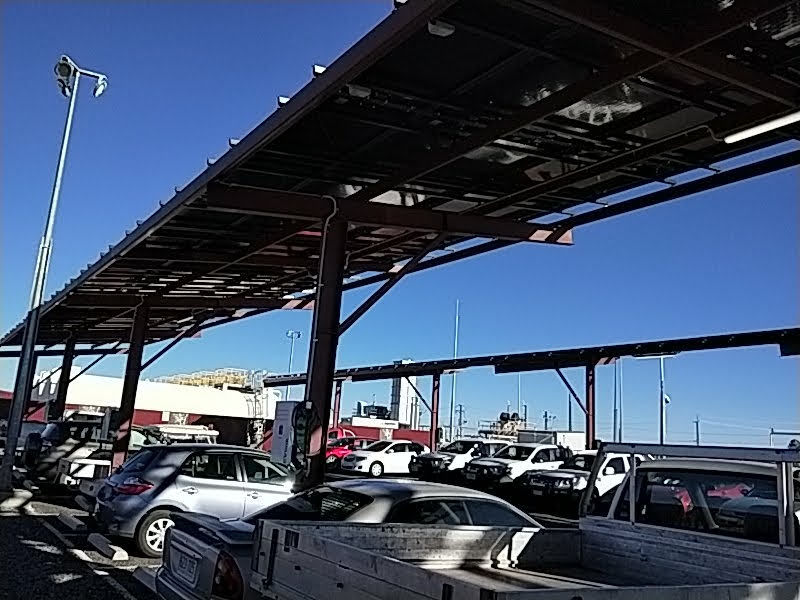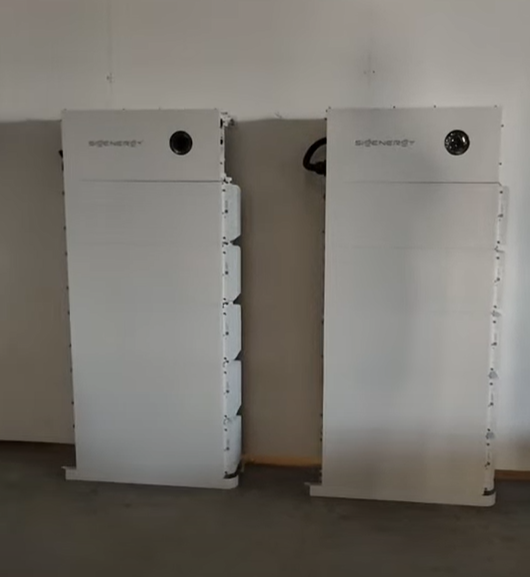The Ultimate Guide to Ensuring Power Security in Off-Grid Solar Applications: Strategies and Solutions
- JVC Energy Team

- Feb 17, 2025
- 3 min read
Updated: Mar 8, 2025
In recent years, the demand for sustainable energy has dramatically increased, leading to a rise in off-grid solar applications. These systems not only offer environmental benefits but also provide users with energy independence. However, ensuring reliable power security is vital. Without a dependable power source, the functionality and efficiency of an off-grid solar setup can be jeopardized, risking power outages and underutilization of energy.
This guide will highlight the significance of power security in off-grid solar systems, explain why it matters, and provide practical strategies to achieve it.
Understanding Power Security in Off-Grid Solar Systems
Power security refers to the reliability and stability of energy supply when users are disconnected from traditional power grids. In off-grid solar systems, this means ensuring a consistent, manageable flow of energy to meet daily requirements.
The core of off-grid solar is self-sufficiency. However, achieving power security involves key elements like battery management, energy resource optimization, and smart system design.
Maintaining power security helps users mitigate risks, avoid service interruptions, and improve the overall lifespan and performance of their solar systems.
Why Power Security Matters
1. Reliability in Energy Supply
Reliability is the cornerstone of power security. Off-grid solar users depend on their systems for essential daily activities such as lighting, heating, and charging devices. For example, data shows that users are 70% less likely to experience power interruptions when they use effective battery management systems. This reliability ensures that needs are met consistently, regardless of environmental factors or system performance.
Without dependable power, users may face disruptions that can affect their daily life and well-being.
2. Economic Benefits
Investing in power security can yield considerable economic gains. By reducing downtime and outages, users can decrease maintenance costs related to repairs and emergency fixes. Studies indicate that systems with strong power security measures can cut operating costs by up to 30%.
Enhanced efficiency also leads to less energy wastage, translating to lower overall expenses and making off-grid solar systems a more appealing long-term investment.
3. Enhanced System Longevity
Power security plays a crucial role in extending the lifespan of off-grid solar components. Regular maintenance, efficient battery management, and optimal energy usage can lessen wear and tear on equipment. For instance, systems that undergo preventative maintenance report a 40% reduction in component failures compared to those that do not.
By focusing on power security, users can enhance performance and durability, resulting in fewer replacements and repairs.

Strategies for Achieving Power Security
To establish power security within an off-grid solar application, users should consider the following strategies:
1. Efficient Energy Storage Solutions
Implementing a robust energy storage system is vital for power security. For example, lithium-ion batteries can provide 300% more energy density and 50% longer lifespans compared to traditional lead-acid batteries. Choosing the right storage option is essential to adapt to fluctuations in energy generation and consumption during different weather conditions.
2. Smart Energy Management Systems
Integrating smart energy management systems (EMS) can dramatically boost power security in off-grid applications. These systems enable users to track energy generation and usage, helping predict demand trends and optimize energy allocation. Data shows that households utilizing smart EMS can reduce energy consumption by 20% to 30%.
Additionally, smart EMS can flag maintenance needs, monitor battery health, and offer insights into system performance, ensuring that users get the most out of their systems.
3. Regular System Maintenance and Upgrades
Scheduling regular maintenance checks can significantly lower the risk of system failures. Users should routinely inspect solar panels, batteries, inverters, and other crucial components. For example, diligent maintenance can extend a solar panel's efficiency by an estimated 15%, leading to more power generation over time.
Moreover, upgrading systems to incorporate new technologies can further enhance performance, ensuring that users maximize their investment.
4. Hybrid Systems Integration
For many off-grid solar setups, integrating complementary energy sources such as wind turbines, hydro, or backup generators can substantially strengthen power security. A hybrid approach means users have alternative resources available during unfavorable conditions, such as long periods of cloudy weather.
This strategy not only helps maintain a constant energy supply but also improves overall resilience during unexpected outages.

5. Load Management
Effective load management is crucial in off-grid systems. Users should analyze their energy consumption patterns and configure their systems accordingly. Implementing energy-efficient appliances and smart technology can significantly reduce demand, helping ensure a more stable energy supply. Understanding peak energy usage times is also important for efficient energy distribution.
Summing Up Power Security
Power security in off-grid solar applications is essential for users seeking sustainability, reliability, and economic efficiency. By recognizing the importance of energy stability and applying strategic solutions, users can enhance performance and ensure long-term success for their systems.
Through effective energy storage, smart management systems, regular maintenance, hybrid solutions, and diligent load management, users can fortify their energy supply. In a world increasingly focused on sustainable solutions, prioritizing power security is a critical step for anyone considering off-grid living.



Comments